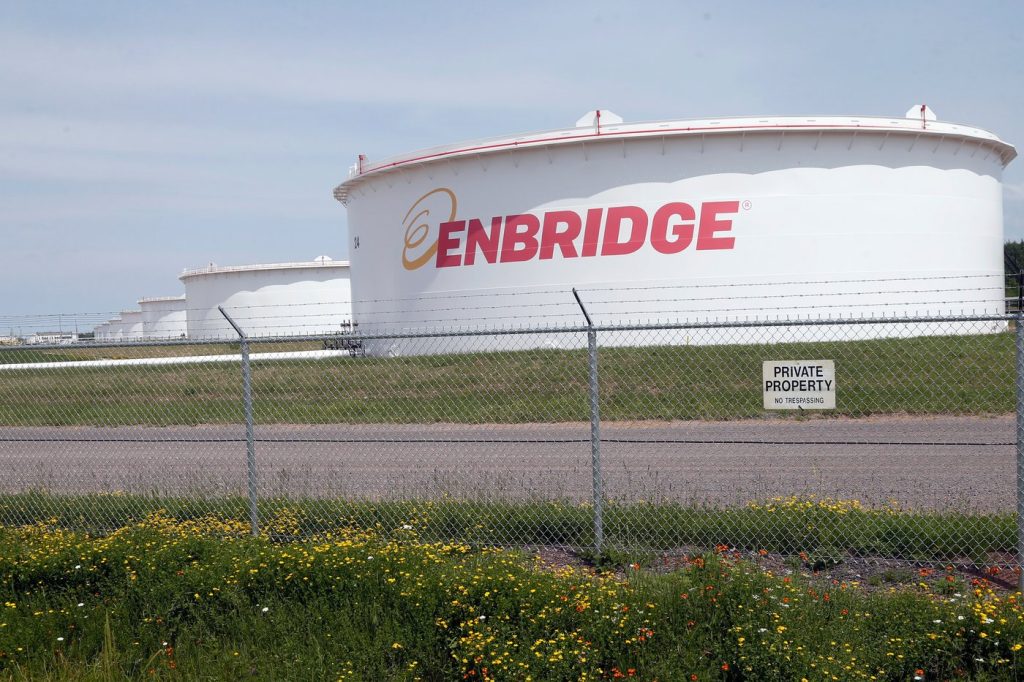MADISON, Wis. (AP) - The U.S. Supreme Court announced on Monday its decision to review whether a lawsuit filed by Michigan Attorney General Dana Nessel, aimed at shutting down a portion of an aging pipeline situated beneath a Great Lakes channel, should be adjudicated in state court.
Nessel initiated the lawsuit in June 2019 in state court, seeking to invalidate the easement that permits the Enbridge energy company to operate a 4.5-mile (6.4-kilometer) section of pipeline under the Straits of Mackinac, which connect Lake Michigan and Lake Huron. In June 2020, Nessel successfully obtained a restraining order from Ingham County Judge James Jamo to halt operations of the pipeline. However, Enbridge was allowed to continue its operations after fulfilling specific safety requirements.
In 2021, Enbridge moved the lawsuit to federal court, contending that it involves U.S. and Canadian trade interests. However, a three-judge panel from the 6th U.S. Circuit Court of Appeals ruled in June 2024 that Enbridge had missed a critical 30-day deadline to change jurisdictions, thereby sending the case back to Judge Jamo.
The Supreme Court’s decision to review the case did not come with an explanation of its rationale. Enbridge officials expressed encouragement regarding this choice, highlighting that there are exceptions to the 30-day deadline that may apply to their case.
Spokesperson Kimberly Bush, representing Nessel, emphasized that the lawsuit should remain within Michigan's jurisdiction. The attorney general's legal team argues that the case is rooted in the public trust doctrine, which is a principle in state law asserting that natural resources are owned by the public.
The pipeline in question, known as Line 5, has been transporting crude oil and natural gas liquids between Superior, Wisconsin, and Sarnia, Ontario, since its installation in 1953. Concerns have escalated regarding the potential for a catastrophic spill from the section beneath the straits, particularly after Enbridge engineers disclosed in 2017 that they had been aware of gaps in the section's protective coating since 2014. This concern was compounded when a boat anchor damaged the pipeline in 2018, raising fears of a spill significantly.
The Michigan Department of Natural Resources, under the administration of Democratic Governor Gretchen Whitmer, revoked the easement allowing the pipeline to operate beneath the Straits in 2020. Enbridge has since initiated a separate federal lawsuit challenging this revocation.
Moreover, Enbridge is pursuing permits to construct a protective tunnel that would encase the vulnerable section of the pipeline under the straits. The Michigan Public Service Commission granted the necessary permits in 2023; however, the company still requires approval from the U.S. Army Corps of Engineers as well as the Michigan Department of Environment, Great Lakes, and Energy.
Compounding the legal complexities, the pipeline is also embroiled in a dispute in Wisconsin. A federal judge in Madison ruled last summer that Enbridge must cease operations on part of Line 5 that crosses the Bad River Band of Lake Superior's reservation within three years. In response, the company has proposed rerouting the pipeline around the reservation and is currently appealing the shutdown order in the 7th U.S. Circuit Court of Appeals.











